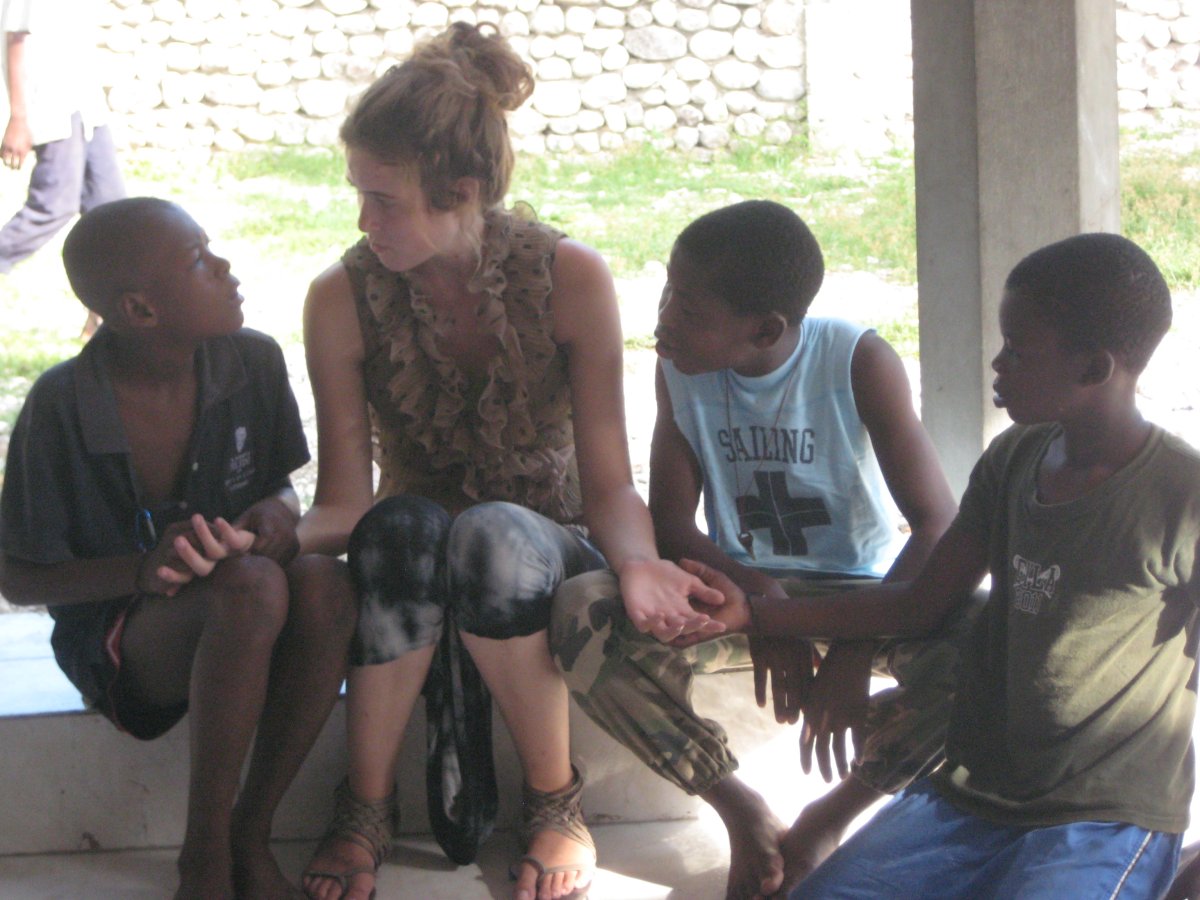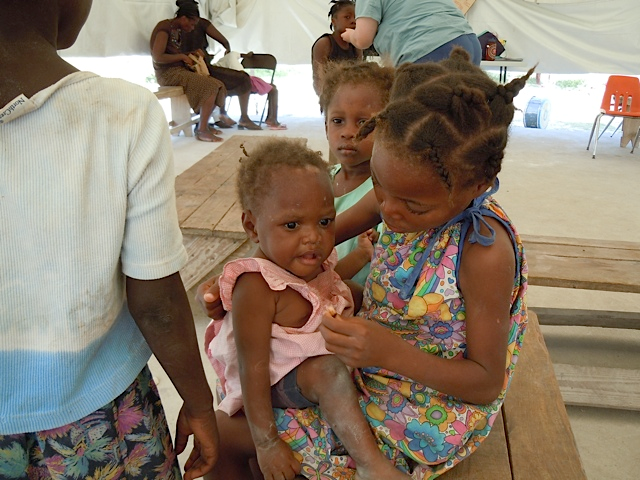Morgan Wienberg recalls the scene that changed her life: Children sitting on concrete floors in their own vomit, emaciated and dehydrated, desperately in need of medical attention.

It was a series of small coincidences that brought the then-18-year-old to the orphanage in Titanyen, Haiti in the wake of a January 2010 earthquake that laid waste to an already fragile country.
After seeing the devastation, Wienberg had to go.
And her mom, Karen Wienberg, wasn’t about to stand in her way, “My role as a parent is to support her passion in living her life. It’s what she wants to do … it’s her purpose there.”
Wienberg originally intended to work with animals in Haiti. But having just graduated from high school she didn’t have the qualifications. So she signed up with Mission of Hope to teach English and help in a prosthetics lab.
Two weeks after her graduation, in July 2010, Wienberg set out.
She started her placement in Titanyen, an area north of Port au Prince. Standing in front of 60 people, most of whom were her own age or older, Wienberg overcame her natural shyness to teach English.
‘I couldn’t see that and not do something about it’
Mission of Hope would take teams of missionaries to go visit a local orphanage to play with and bring candy to the children. Morgan decided to go along.
But the conditions shocked her.
“I couldn’t see that and not do something about it,” Wienberg says.
Wienberg started getting to know the children, making a list of their names after realizing no one else would notice if one of them went missing because their caretakers didn’t call them by name.
After two months of living and working with Mission of Hope, Wienberg returned home to Whitehorse, intent on going back. She deferred beginning her undergraduate studies at McGill and worked at a bakery and local animal shelter to finance her return.
In February 2011, Wienberg went back to live in the orphanage with the children to whom she’d grown attached. As she began to learn the language she got to know the children and it was then she realized that most of the children weren’t orphans at all.
Many came from poor families in the Haitian countryside or single-parent homes and had been given up in hopes that it would give them a better life.
“Those parents feel that they will never have a chance of getting that aid or that support for their child.”
A country of ersatz orphans
Haiti has no shortage of orphanages: In 2012 there were an estimated 30,000 children living in 722 orphanages, according to UNICEF. And a flood of international aid can make things worse if it’s irresponsibly disbursed or poorly overseen. And if Haitian social services wants to shut an orphanage down, Wienberg says, there’s often nowhere for children to go in the meantime.
In 2011, Wienberg and Sarah Wilson, a paramedic and nurse from Waterloo, co-founded Little Footprints, Big Steps after meeting in Haiti. Their goal: reuniting children with their families, enrolling the children in school and putting a social safety net is put in place to make that reunion sustainable.
“If a child is sick, or if there is some kind of emergency they don’t have to panic and abandon their child,” Wienberg said.
The organization now has eight staff, all Haitians. Four are dedicated to visiting the 86 families involved in the program, which also offers the families support for agriculture, livestock or small businesses such as buying and reselling goods. The organization has also helped community members make food or coffee to sell and help purchase sewing machines to increase productivity.
“Strong families not only will strengthen the community but will foster better development for each child and prevent the exploitation of those children,” Wienberg said.
It doesn’t always work out: Three families who left their children at the orphanage have been left without answers, unable to find them.
There are children left at the orphanage who can’t return to their families for various reasons – they may not have families to return to or have been on their own for so long they need time to adjust before returning home. Wienberg set up a transitional “safe house” in Les Cayes where these children can live.
Job was among them.
He was 12 years old and living on the street when he came across Morgan two years ago , almost by accident. She was watching performances in the streets of Les Cayes when he happened to pass by.
“Job came up and sat beside me and just kind of leaned over in my lap and fell asleep,” she recalls.
She took him to the safe house and enrolled him in school. He is now at the top of his class and thriving, she says.
Job wasn’t comfortable returning to his parents’ home, in a dangerous area just outside of Les Cayes. In partnership with One Small House, Little Footsteps, Big Steps moved them to a safer area.
Wienberg moved to Haiti full-time at the end of 2011. She supports herself with her savings and her mom’s help.
Little Footprints, Big Steps has an operating budget of $180 000 which is spent on staff salaries and programs. The organization relies on individual donors, its sponsorship program, and the support of local businesses, in addition to partnerships with other NGOs.
‘I would never choose to be anywhere else’
In the past four years post-quake, Wienberg says, some things in Haiti have improved.
Tent communities have evolved into permanent homes, people are noticeably healthier and Wienberg believes the general attitude to be more positive.
Now 22, she hopes to take a step back from the charity she founded to go to university, perhaps to study social work, psychology or international relations.
For now, however, Wienberg is in Miami taking care of Ysaac, a 14-year-old boy who just had surgery to remove a benign tumor growing on the right side of his face. She became his legal guardian a year and a half ago after finding out his father was 75 years old and couldn’t take on an active parental role. Being Ysaac’s guardian allows Morgan to travel with him and make medical decisions. Her role in Miami is essential: She’s the only one there who can communicate with him in Creole.
“As stressful as it can be or as ridiculous as some situations are, I would never choose to be anywhere else.”
PHOTOS: A glimpse inside the life of a child in Haiti



































Comments